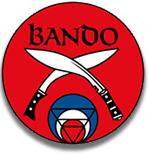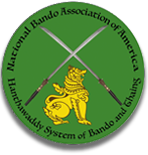Dr. Maung Gyi’s father, Sayaji U Ba Than Gyi, became a key part of the post-war Burmese government. A brilliant scholar and masterful martial artist, U Ba Than Gyi had played a key role in the establishment of the Military Athletic Club in pre-World War II Burma. Now, he would find himself in an ideal situation to further the goals of the Military Athletic Club: U Ba Than Gyi would become the director of the Burmese program of physical education and athletics. To Bando’s great benefit, U Ba Than Gyi seized the opportunity to travel throughout the country under the auspices of the government. He sought out masters of the martial arts throughout Burma from many styles and systems.
The British had originally suppressed the native Burmese martial arts, as had been the case with the rulers of Okinawa. And, as was the case in Okinawa, the indigenous Burmese martial arts had not disappeared altogether. Instead, masters and families had kept the suppressed systems alive in secret. Now, Sayaji U Ba Than could travel the nation openly and confer with these living legacies.
U Ba Than was particularly interested in organizing the knowledge of the surviving masters in Burma. Their arts had been preserved within close-knit family structures, or perhaps disguised for preservation in the form of folk dance (as in China and Okinawa), or in forms of entertainment, such as the theater and the opera, as in the Chinese opera. In addition, some clever progenitors had hidden the essence of some systems in the guise of sports activities, channeling aggression and conflict into an arena between two men as opposed to training groups to undertake resistance against the government.
Eventually, martial artists from many styles came to visit the Elder Gyi’s (U Ba Than Gyi’s) compound and demonstrate their various systems. Those demonstrations were very demanding. “Masters” who could not perform on their promises faced a series of aggressive “reality checks”. For example, Dr. Gyi relates the story of one “master” who claimed his martial prowess would allow him to defeat ten attackers simultaneously. A test was arranged at a soccer field by the Elder Gyi. Ten attackers were arrayed against the “master”. The “master” was simultaneously attacked by all ten.


